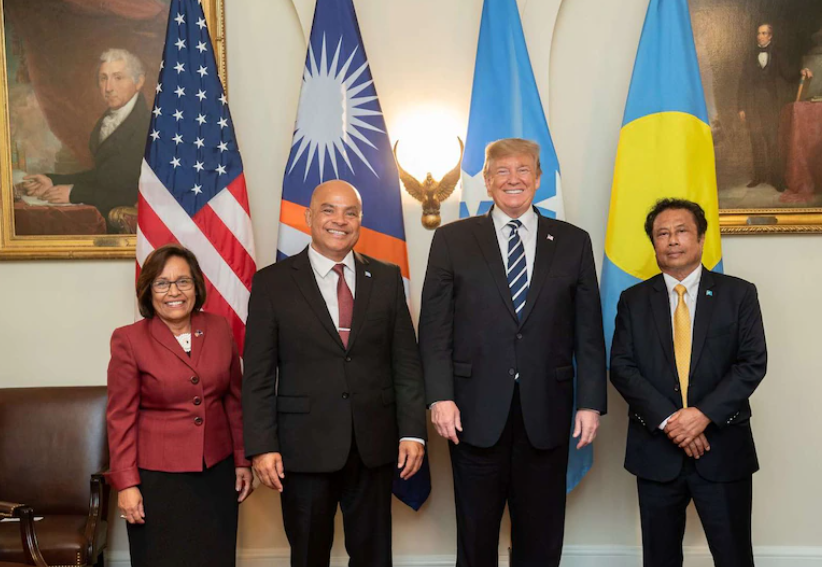Pacific leaders are expressing concern over President Donald Trump’s immigration policies, fearing that the mass deportation of undocumented Pasifika migrants could lead to an influx of deportees with criminal records arriving in the islands.
Trump has vowed to deport “millions and millions” of illegal migrants, and his administration has already begun large-scale operations targeting Pacific islanders. Among the 1.4 million people at risk of deportation, over 561 are former Fijian citizens, 151 are Tongans, and 57 are Sāmoans, along with smaller numbers from other Pacific nations.
Leaders in Tonga, Fiji, Sāmoa, Papua New Guinea, and the Marshall Islands are particularly alarmed, as many deportees have been convicted of serious drug-related and violent crimes. Fiji’s Prime Minister, Sitiveni Rabuka, raised these concerns during a meeting in Washington, D.C., with Ed Case, chairman of the Congressional Pacific Islands Caucus. He emphasized the potential safety risks posed by returning criminals and stressed the need for international coordination on the deportation process.
Tonga’s Prime Minister, Dr. ‘Aisake Eke, echoed these concerns, warning that an influx of deportees would only worsen existing social challenges. Tonga has received around 30 deported criminals annually since 2010, contributing to rising drug-related crime and security issues.
Research indicates that many deportees struggle with reintegration, facing stigma and a lack of family support. Without proper rehabilitation, some return to criminal activity, particularly in regions already dealing with the methamphetamine trade. According to the Lowy Institute, at least 3,500 Pacific nationals were deported from New Zealand, Australia, and the U.S. between 2004 and 2020.
Prominent Fijian lawyer Dorsami Naidu warned that deportees often introduce new criminal tactics learned abroad. Henrietta McNeill, a research fellow at the Australian National University, added that deported individuals without support often return to illegal activities out of necessity.
Officials from the Marshall Islands, Palau, and the Federated States of Micronesia—whose citizens have the right to live and work in the U.S. under Compacts of Free Association—are seeking reassurances that Trump’s executive order will not impact their legal status. The Marshall Islands government has even advised its citizens in the U.S. not to open the door to immigration officials without a judicial warrant.
With growing fears that Trump’s policies could further destabilize the Pacific region, leaders are calling for urgent discussions to ensure that deportation processes do not compromise security and social stability.





